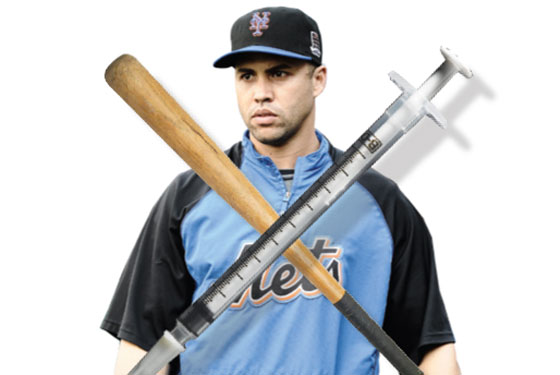
It’s difficult to empathize with a man who will make $17 million to run around in the grass this summer, but in the case of Carlos Beltran, we should try. In January, Beltran took a beating from Mets fans and team brass when he had knee surgery that could sideline him until May. His decision seemed further proof of the oft-leveled accusation that he is an insufficiently enthusiastic player. In reality, he had tried to find a specialist who might have been able to get him back on the field sans surgery for opening day—but now he has an even bigger problem, because one of the doctors he saw in that quest is the now-infamous Tony Galea.
Galea is suspected of conspiring to have human growth hormone and something called “Actovegin” smuggled into the U.S. But he also performs “platelet-rich plasma therapy,” in which a patient’s blood is drawn and put in a centrifuge to concentrate its platelets, then reinjected into an affected body part. It’s controversial, but not uncommon, nor banned by baseball. And it’s helped make Galea a big name in sports medicine, which is why Beltran saw him. But when news of an FBI probe into Galea came out, Beltran was set upon. “I have nothing to hide,” he said. “I just went there for an opinion for my knee.” The Daily News’ interpretation? A huge headline saying I HAVE NOTHING TO HIDE … and an article illustrated with a hypodermic needle. Beltran can’t win for losing.
Fans and media demand that players tough it out to stay on the field, but they get squeamish when they find out how that’s done. Mark McGwire took heat for saying he took steroids to avoid injury rather than to hit home runs, yet avoiding or recovering from injury is a huge reason players take performance enhancers. (McGwire’s mistake was not admitting that he hit more homers because he stayed healthy.) Yes, they might explore sometimes-untested techniques in order to hit the ball five feet farther—but it’s likely that more often, they do it because they want to be healthy enough to play. As much as you might want Beltran to stay on the field, he wants to stay there more; the danger that any player will lose a career to injury is far greater than the danger he’ll lose it because he hit 22 homers instead of 25.
Baseball makes nearly as much in total revenue as the NFL, and, naturally, players bust up their bodies in an effort to get pieces of the pie. And men who stand to lose millions aren’t just going to rub some dirt on the ol’ trick knee and hope for the best. They’re going to try procedures that blur the line between cutting-edge and dangerous. Which isn’t to say we should blithely let players supplement themselves to an early grave. But if we start by acknowledging that there are good reasons—driven by our own fandom—that they do almost anything they can to be able to play pro sports, we might actually be able to have a discussion about where, exactly, to draw the line. To have that discussion only after the fact—after they’re on the back page, reputations stained—well, our millionaires deserve better than that.
Have good intel? Send tips to [email protected].
